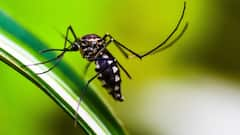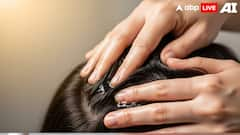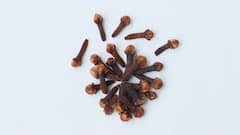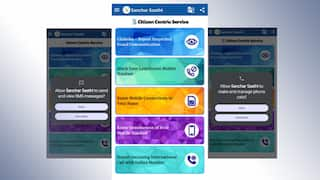Explorer
7 Healthy Habits For Maintaining Kidney Health
By adopting a few key habits, you can support kidney function and reduce the risk of developing kidney-related diseases.
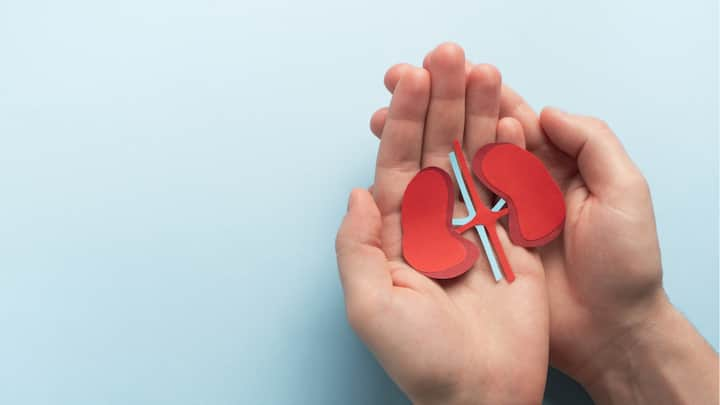
Keep Your Kidney Healthy With These Tips
1/8

1. Stay Hydrated: One of the simplest ways to support kidney health is by staying well-hydrated. Water helps your kidneys remove waste and toxins from your blood by forming urine. When you’re adequately hydrated, your urine is clear or light yellow, indicating that your kidneys are effectively filtering waste. Aim to drink 6 to 8 glasses of water daily, adjusting your intake based on factors like physical activity, climate, and overall health. However, if you have certain kidney conditions, such as kidney failure, your doctor may advise limiting fluid intake. (Image source: ABP Live AI)
2/8

2. Eat a balanced diet: A balanced diet is essential for maintaining kidney health. Focus on eating a variety of fruits, vegetables, whole grains, and lean proteins. Foods rich in antioxidants, such as berries and leafy greens, can help reduce inflammation and oxidative stress on the kidneys. It's also important to limit salt intake, as excessive sodium can lead to high blood pressure, a leading cause of kidney damage. Processed foods and fast foods often contain high levels of sodium, so choosing fresh, whole foods whenever possible is beneficial. For those at risk of kidney stones, a diet that limits foods high in oxalates, such as spinach and nuts, while ensuring adequate calcium intake, can help prevent stone formation. Additionally, reducing animal protein consumption can help lower the risk of kidney stones and reduce the strain on your kidneys. (Image source: Canva)
3/8
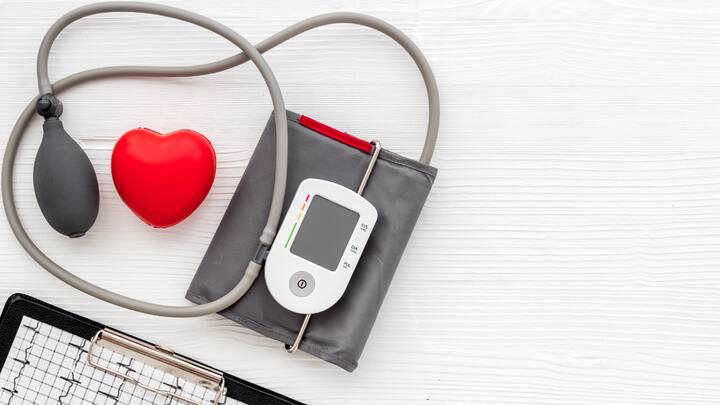
3. Monitor blood pressure and blood sugar levels: High blood pressure and diabetes are two of the leading causes of kidney disease. Managing these conditions is critical for preserving kidney function. Regularly monitoring your blood pressure and blood sugar levels can help you keep them within a healthy range. If you have high blood pressure, follow your doctor's recommendations, which may include lifestyle changes and medications. For those with diabetes, maintaining good blood sugar control is key to preventing kidney damage over time. (Image source: Canva)
4/8

4. Exercise regularly: Regular physical activity benefits your overall health and plays a significant role in maintaining kidney health. Exercise helps regulate blood pressure, control weight, and improve cardiovascular health—all of which are important for kidney function. Aim for at least 150 minutes of moderate intensity exercise per week, such as brisk walking, swimming, or cycling. Even activities like gardening or household chores can contribute to your weekly exercise goals. (Image source: Canva)
5/8

5. Avoid smoking and limit alcohol: Smoking and excessive alcohol consumption can harm your kidneys. Smoking reduces blood flow to the kidneys, impairing their ability to function properly. It also increases the risk of kidney cancer. If you smoke, quitting is one of the best steps you can take for your kidney health. Similarly, excessive alcohol consumption can lead to dehydration, increase blood pressure, and contribute to kidney damage. Limiting alcohol to moderate levels—no more than one drink per day for women and two for men—can help protect your kidneys. (Image source: Canva)
6/8

6. Be mindful of medications: Certain medications, particularly non-prescription pain relievers like NSAIDs (e.g., ibuprofen, naproxen), can cause kidney damage if used excessively or over a long period. Always follow the recommended dosage and consult your doctor if you need to take these medications regularly. If you have existing kidney conditions, your doctor may advise you to avoid certain drugs altogether. (Image source: Canva)
7/8

7. Regular check-ups: Routine check-ups are vital for detecting any potential kidney issues early. Regular blood tests and urine tests can help monitor kidney function and identify any signs of kidney disease before they progress. If you have risk factors for kidney disease, such as high blood pressure, diabetes, or a family history of kidney problems, it’s especially important to have your kidneys checked regularly. (Image source: Canva)
8/8

Inputs By: Dr. Adittya K. Sharma, Senior Director & Head Urology, Andrology, Kidney Transplant & Robotic Uro-Oncology, Max Super Speciality Hospital Gomti Nagar Lucknow (Image source: ABP Live AI)
Published at : 29 Aug 2024 05:18 PM (IST)
View More
Advertisement
Trending News
Advertisement
Advertisement
Top Headlines
India
News
Delhi NCR
Technology














